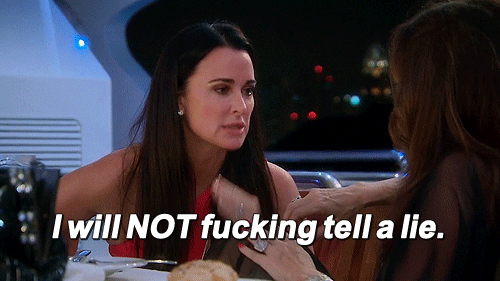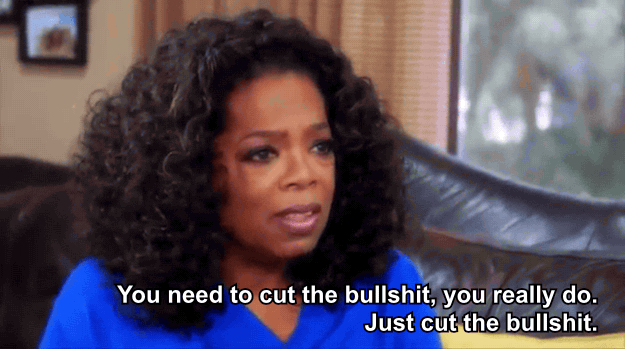Two-Part Names & Other Joys: An Interview with Faith Zamblé
The Civilians' Resident Dramaturg Phoebe Corde sits down (virtually) with Extended Play editor Faith Zamblé to talk dramaturgy, research, and more.
Sign up to get spam-free email updates to ensure you never miss an article and to receive exclusive details about performances and events from The Civilians.
“I’m just glad he’s on the inside of the set, and I’m on the outside, and I can turn him off whenever I want.”
Muffy holds her drink up to the window’s light and looks at it. “And of course you never lie there awake in the dark considering the possibility that it’s the other way around.”
-David Foster Wallace, “Little Expressionless Animals”
I love reality television. I’m not ashamed to admit it. Take a peek at my DVR at any given time if you don’t believe me — from “The Bachelor” to “America’s Next Top Model” (RIP) to “Project Runway” and beyond, it’s catnip to me (or would that be Kardashian-nip?). Why do I love reality television so much? Besides the fact that it’s just so much damned fun? The answer is: I love reality television because it’s not afraid to tell the truth about all the ways that we are fake. I love it because it’s not scared to be a sincere statement on an insincere world. In its superficiality, it gets to the heart of what makes us, in this day and age, human.
Reality television is not real. We all know that. Producers manipulate and motivate participants to achieve just the perfect shade of network meltdown. Contestants are crafted from a pool of “talent” so aware of the tropes of the industry that they’ve self-programmed to be “not here to make friends” long before any cameras are rolling. This is not the voyeurism promised by the genre when it was first conceived. No, reality television, in the twenty-first century, is a bonanza of people who know just what they’ve signed up for and who are desperate fit inside the corporate boxes conceived for maximum viewer satisfaction. The only thing real about reality television, one might argue, is the want and need of its contestants. Need not to win a challenge or even bag a mate, but need to be seen, an almost Hegelian quest for existential recognition reduced to sixty-minute segments. And it’s hard to argue, and easy to empathize, with that kind of desire; don’t we all, in our own ways, long to be truly seen — by another person, by the world around us — to be recognized and affirmed as worthy of love and success and life itself? What’s more real than that?

In his seminal essay on the medium, “Getting Down to What is Really Real,” John Jeremiah Sullivan writes: “Now, when you’re watching a reality show… you’re watching people caught in the act of being on a reality show… Here’s the surprising thing about this shift towards great self-consciousness, this increased awareness of complicity in the falseness of it all — it made things more real.” Keep in mind that Sullivan wrote his essay five-plus years ago, when the ubiquity of Vine and selfie sticks were still a distant nightmare. Now, in 2016, not only are reality television contestants enacting this feedback-loop of self-awareness, but so are we. What is a contemporary teenager’s life but a self-produced reality show spread across multiple (social) networks: Facebook + Snapchat + Instagram + Twitter = My So-Called Real Life. More and more, we’re living our lives as if a camera-crew has invaded our bedrooms — the only difference is, it’s a camera-crew of one person, and that one person is ourselves.
All of which is a long-winded way of saying: I think reality television is important, because I think it tells us a lot about how we think and how we live. It is easy to write off, a habit common in the theater world — “I would never watch that trash.” “I don’t want to pollute my brain.” “Reality television is the death of art.” These people might not be wrong, but they’re also enacting a very convenient bit of see-no-evil-hear-no-evil; if I place myself above such media, it ceases to affect myself and my world. Fun fact — it doesn’t; one needs only look to our political climate to see that. The rise of Donald Trump is a perfect example of the dangers of writing off the reality television engine. How often, early in his campaign, did pundits and fellow politicians laugh at the viability of his candidacy, mocking it as pure trash, as doomed to fail, as stunt? And here we are. This is the America we now live in; changing the channel doesn’t change that fact.

Writing off reality television doesn’t just write off the corporate sponsors and Machiavellian producers and lowest-common denominator culture; it writes off all the contestants that have made the choice, for one reason or another, to get in front of the camera, people less different from you or me than we would like to believe. What most touches me about reality television are the moments of undeniable humanity: the tears that can’t be held back after being rejected by the person you love; the rush of joy while achieving a goal you have set for yourself; the desire; the want. It is easier to be superior to reality television contestants, but to do so is to refuse empathy, is to refuse to acknowledge the things that tie us together as a race. Theater, at its best, is a medium of radical empathy — it goes forward, searching for connection and identification in the most unlikely of places, humanizing and bringing close what is far from us. If theater can humanize monsters and murderers, why can’t it do the same for reality television performers, whose only crime is taking a basic contemporary desire — the desire to be seen — and taking it to its logical, albeit extreme, conclusion?
Such thinking is what made me write “The Lucky Ladies (someday you will be loved),” my first play about reality television, and it is what made me write “Gold Person,” my newest play on the subject. Gold Person follows Bobby, a former contestant on numerous seasons of a challenge-based reality show. At 35, the show has stopped calling on him for new seasons, but Bobby’s need for the spotlight remains. After spending years — essentially his whole adult life — in front of the camera, the only thing Bobby knows how to do, the only thing he’s good at, is being seen. What happens when no one wants that anymore? What happens… after reality?

“Gold Person” is about reality television. But it’s also about being a Californian, a denizen of that gold-rush land of opportunity; the play is as much inspired by Joan Didion as it is by “The Real World.” As she so aptly wrote: “California is a place in which a boom mentality and a sense of Chekhovian loss meet in uneasy suspension; in which the mind is troubled by some buried but ineradicable suspicion that things better work here, because here, beneath the immense bleached sky, is where we run out of continent.” Being a Californian myself, I am troubled by those same suspicions, by that same ambition and desire written in my DNA, the same ambition and desire that drives a person like Bobby. California is the crystallization of Manifest Destiny, the boomtown of the American Dream; how do you reconcile yourself to failure when your very birthright promises success at the end of the Yellow Brick Road, at the end of the rainbow, at the feet of the Hollywood sign? What does it mean to be a Gold Person?
While researching this play, I had the opportunity to interview a number of former reality show contestants. All were giving and gracious in their time. Some had long given up that life in favor of other ventures; some still clung to the grip of fame in one way or another, hoping for another shot at success. All seemed undeniably changed by their experiences on television, in neither a positive nor a negative capacity; like children navigating the paths of adolescence towards adulthood, they all seemed to have lost a bit of innocence somewhere along the way, receiving in its place a form of experience too complicated to parse in words. One former contestant told me of two dreams he had for his future: one, to live an anonymous life in a small Italian village, a life of respite and placidity; the other, to create a media empire on par with Oprah, with its own stable of reality-television shows. The fact that these two dreams did not seem mutually exclusive to him perhaps perfectly encapsulates the whimsical duality of the reality-television mindset. But can’t we all relate? Don’t we all desire both the quiet of a room of our own and also the recognition of the world around us? Want to be both inside and outside of the set? Don’t we all, secretly, want both a little Italy and a little Oprah?
